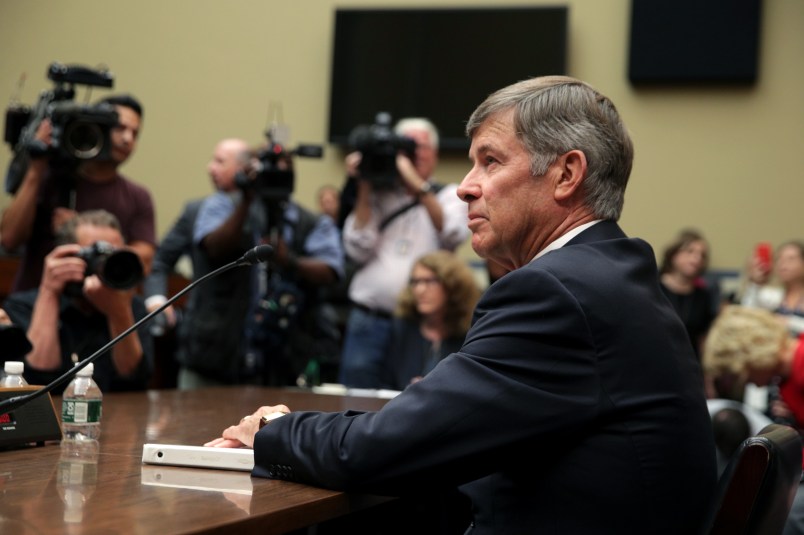Acting Director of National Intelligence Joseph Maguire revealed new details on how an explosive whistleblower complaint alleging serious presidential misconduct was initially handled. Maguire admitted that the White House was the first outside party he went to to seek advice on the next steps.
The White House initially said a whistleblower’s complaint was subject to executive privilege, Maguire said, and therefore he was initially prohibited from sharing the complaint with Congress.
When Maguire first saw the complaint, he said in his opening statement before the committee, he was struck that it concerned a call between Trump and a foreign leader — namely, the July 25 call in which Trump pressured Ukrainian President Volodymyr Zelensky to investigate Joe and Hunter Biden.
After House Intelligence Chairman Adam Schiff (D-CA) pressed him on his next move, Maguire said he went to the White House before seeking that Department of Justice’s advice on whether whistleblower law required the complaint’s transmission to Congress.
“We were advised that much of the information in the complaint was in fact was in fact subject to executive privilege,” he said. Therefore, “we were unable to immediately share the details of the complaint with this committee.”
Later in Thursday’s hearing, Maguire specified that the White House did not instruct him to go to the Justice Department.
“My team— my counsel, in consultation with the intelligence community inspector general, went to the Office of Legal Counsel,” he said. “They were not directed to do that.”
After the White House released the memorandum of the call Wednesday, Maguire said, he able to release the complaint to Congress. “We are now able to disclose the details of both the complaint and the inspector general’s letter transmitted to us,” Maguire said.
Asked later by committee Chairman Adam Schiff (D-CA) if the White House ever actually did exert executive privilege — rather than just asserting that the call could be subject to it — Maguire implied they did not.
“They were working through the executive privilege procedures and deciding whether or not to exert executive privilege,” he said.
But did they ever actually exert executive privilege? Schiff pressed.
“If they did, we would not have released the letters yesterday and all of the information that has been forthcoming,” Maguire answered.
This post has been updated.







Maguire is being eaten blood raw!
Maguire admitted that the White House was the first outside party he went to to seek advice on the next steps.
What are they going to say ? Prosecute us ! Please
Gives a new definition to the Fox watching the hen house
Somewhere Dick Nixon is having a good laugh.
Trump pooped the bed and so the maids hid the sheets and furniture from everybody. Normal, everyday housekeeping.
Impeach them all!!!